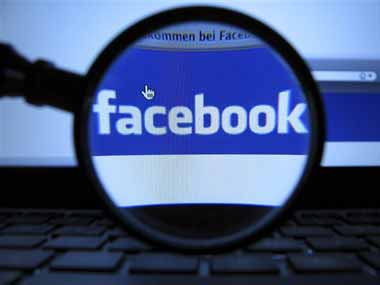Companies, universities and government agencies in the USA have been asking job candidates for either their social media passwords or are asking them to friend the potential employer to facilitate a thorough vetting of the applicant’s private life prior to offering them a job. Some universities are asking students for access to their social networks too.
[caption id=“attachment_255942” align=“alignleft” width=“380” caption=“Your right to a private life extends to Facebook: Associated Press”]  [/caption]
The practice has, quite rightly, raised the ire not just of the public but also of Facebook, who have told employers to back off , and two US Senators who have demanded an investigation into the practice . It’s heartening to see so many people recognise that to demand access to a job candidate or student’s social media networks is a gross invasion of privacy.
But Read Write Web’s Fredric Paul says that he thinks there are some situations where such requests are legitimate. He says:
Creepy or not, though, it’s easy to come up with several cases where accessing worker’s “private” social media accounts might be legitimate:
When the worker’s job involves using social media.
If there’s some incident or issue that raises suspicion of misuse.
If there are national security or public-safety issues involved.
None of these are compelling cases for anyone to ask an employee or job candidate for their social media passwords. Although Paul focuses on the first example, it’s no stronger than the others.
If an employee’s job involves social media, there must be either a division between work and personal accounts, or the employer has to trust that the employee is going to be responsible in what they write on their personal accounts. Most employees whose jobs are focused on social media have very public profiles, so it should be pretty easy to see what they are saying. If they are not using their accounts responsibly you have clearly got big problems with your recruitment process.
Suspicion of misuse is also not an excuse to ask for someone’s password. Any company IT department will be able to see whether an employee is, for example, spending too much time on Facebook, and deal with that without actually needing access to their social media accounts. And if there’s actual evidence of misuse, such as corporate espionage or breaking compliance laws, then that’s something to be dealt with at a disciplinary or even court level. It’s not for employers to go round searching for evidence of misdoing on a whim.
As for national security or public safety issues, well, in those cases court orders and warrants for passwords shouldn’t be too hard to secure. I’m not arguing that passwords should never be handed over, but we have due process in order to protect the innocent and that process must be followed every time.
Privacy advocates have for years been encouraging people to take more care of their data and to ensure that they have checked the security settings on every social tool they use. Part of the reason for this is to protect users from their employers: Not everyone loves their job or lives a private life that their boss would approve of. But they have a right to their personal opinions and to the ability to express those opinions in private. Employers going on fishing expeditions to see what they can find in someone’s private profile is simply unacceptable.
Freedom of thought, conscience and religion are human rights, often thought of in terms of the freedom to join or leave a religion of their choosing, or the right to hold intellectual or political views at odds with, say, a governing regime. But it also means the right to be able to hold other, much more mundane opinions and beliefs and not be persecuted for them.
This is without even touching on the issues for minorities who may face discrimination. People with disabilities or mental health problems, women who are pregnant, people in the LGBT community, those with alternative lifestyles, or even those who simply have flamboyant friends may find themselves on the wrong end of an employer’s prejudice. Privacy settings are there for a reason and should be respected, not circumvented by demands for passwords.
Whilst it is foolish for anyone to believe that the Internet, and social networks in particular, are completely secure and private - all social networks can ’leak’ private information - demanding passwords goes beyond the pale.


)
)
)
)
)
)
)
)
)



